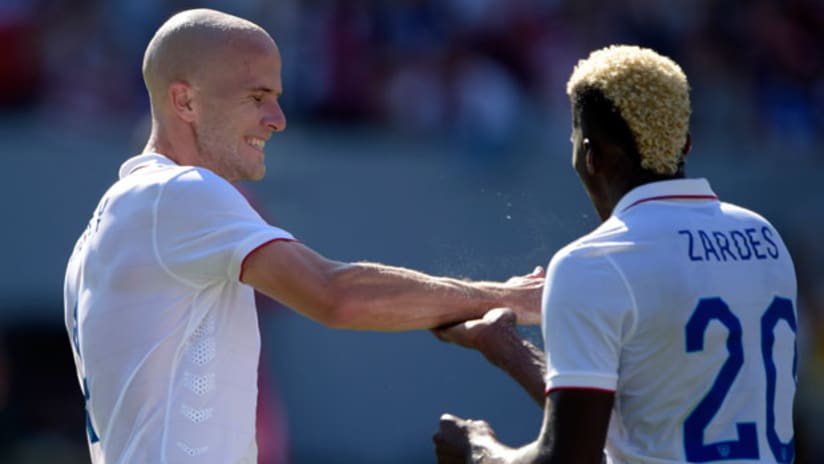First a disclaimer of sorts: The US national team should always expect to beat Panama, a team against whom they are now 12-1-2 all time, at home. And whatever fans may think of it, an experimental spirit still prevails at this time of year and cycle.
But when you haven't won in six months, your coach is making antagonistic headlines in the name of “conversation” and veteran players are openly admitting their confusion with recent tactical choices, an assured 2-0 victory is always a welcome sight.
Though he's unlikely to admit it, Jurgen Klinsmann and his men really needed things to go well on Sunday. That surely influenced his decision to set aside the 3-5-2 experiment (for now at least) and put most of his players in more comfortable and familiar roles.
1) When in doubt, go with the 4-4-2
Klinsmann had several compelling reasons for tinkering with the 3-5-2, and it may well remain “a card in his pocket,” as he described it earlier in the week. But one January camp proved too short a period to rehearse it to anything approaching fluidity, so on Sunday he arranged the squad in the approach that is second nature to American players, and sure enough, they looked a whole lot more at ease than they had in that 3-2 loss to Chile. Defending is easier in two banks of four and the passing lines are just more familiar, even if that makes them more predictable to advanced opposition.
His freewheeling attitude at this point in the cycle makes it easy to overlook some of the lessons that Klinsmann HAS learned in his three and a half years in charge. The players like 4-4-2. Set pieces are still a leading weapon (how about that Olimpico, eh?). Jozy Altidore and Clint Dempsey are a quality, complementary strike partnership, as we saw in flashes vs. Panama.
And the Yanks' first-choice spine is more solid than it gets credit for, running from that duo up front to Michael Bradley in the engine room and continuing back to the center backs, where Matt Besler provided a calming counterbalance to Jermaine Jones' swashbuckling aggression. On Sunday, Besler's discipline enabled Jones to step forward and stroke a few telling passes to spark attacks, a pattern of play that can often look downright frightening in a three-man defense.
2) New blood is always welcomed
This year's extra hubbub should not distract from the fundamental purpose of the January camp: To introduce newcomers to the player pool and test their readiness to contribute in the year ahead.
Some of this year's new guys fumbled their opportunities – mainly, it would seem, those who drew Klinsmann's ire by arriving at camp out of shape – but not Gyasi Zardes. The LA Galaxy star made enormous strides with his 2014 performance at club level (thanks, Robbie Keane!), and on Sunday he consolidated that growth in international play, covering tons of ground and consistently making smart decisions on and off the ball.
Creating that turnover and setting up Dempsey's goal with a defense-splitting pass? Zardes made it look easier than it really was, and reminded us again how special he could be with his rare marriage of footballing skill and exemplary athleticism. And he did it all in a winger's role – the same tasking that made him so clearly uncomfortable in his early days with the Galaxy.
3) Fullbacks are still a problem
Klinsmann says his formational tinkering was inspired by the USA's ongoing shortage of international-caliber fullbacks, and there were hints of that weakness on Sunday.
DeAndre Yedlin is maybe the most prominent success story of the Jurgen Era, but his wobbly outing (albeit cut short by injury) was a reminder that he's a long way from the finished product. He was nearly caught out of position on several occasions, and his passing left something to be desired on a day when most of his teammates prospered in the face of Panama's passivity.
And on the other flank, well, Orlando City fans had better buckle up, because Brek Shea's transition to left back will be a bumpy ride for the near future. He's got the tools, to be sure, but the instincts and decision-making required from a top-class fullback just aren't programmed into that artist's brain of his quite yet.












